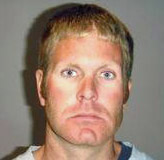By Donna Andersen Michael J. Bonert, 33, is from Delaware County, Iowa, but at the moment he is a resident of the North Central Correctional Facility in Rockwell City, Iowa. He was sentenced to 21 years behind bars for relentlessly stalking his former girlfriend, Vicki Kuper, also of Delaware County, Iowa. Bonert was charged with 45 offenses, including 24 violations of Vicki's no-contact order. And those were just the incidents that resulted in criminal charges there were many more. Since being incarcerated on August 30, 2010, Bonert has played the part of the model prisoner. One prison psychologist said his behavior was exemplary. Another described him as courteous and …
Tools of a Sociopath: Using the Silent Treatment to Manipulate and Control
by Quinn Pierce A Stifling Silence One of my ex-husband's favorite tools of manipulation was the silent treatment. On the surface, it seemed like a childish ploy to get what he wanted, but in reality, the silent treatment is a behavior abusers use to attack their partner's vulnerability and self-esteem in order to exert control. I can clearly see now that my ex-husband took plenty of time in the beginning of our relationship to assess how I would react to the silent treatment. It is a skill he practiced and perfected along the way, until the greatest impact was achieved. A sociopath won't risk losing the relationship, so it was a complicated game he played to keep me off-balance, …
Tools of a Sociopath: Using the Silent Treatment to Manipulate and ControlRead More
BOOK REVIEW: Letters to God
Jane Pinney was married to a sociopath and adopted two children. Her husband attempted to poison her, and then accused her (of what, I'm not sure, but it was serious). The experience inspired Pinney to write a book called Letters to God. This book does not relay the chronology of events. Instead, it tells the story of Pinney's state of mind, in real time, as she tries to pull herself out of the abyss created by her disordered ex-husband. She starts the book by writing, I realized that in all my life, especially this past year, I have written thousands of letters to hundreds of people. Everyone under the sun, who I thought could help me in my quest to protect those I love and bring to …
LETTER TO LOVEFRAUD: Psychopathic professor abuses his position as mentor
Editor's Note: This letter to Lovefraud was submitted by Lovefraud reader whom we'll call “Rhona.” I've had no contact since April 21, 2013. My last direct contact was an email I sent him. In that letter, I stated what I knew to be true about our "relationship." I didn't send it to provoke future contact in fact I said at the end I would not read another email from him but instead sent it to acknowledge and assert my intelligence and my awareness that he had used my good nature against me, as well as to establish some agency of my own by openly regarding his constructed narrative about our experience as fictionalized and controlling. Since sending that letter and ending contact, I've …
LETTER TO LOVEFRAUD: Psychopathic professor abuses his position as mentorRead More
Tracking the False Tears of a Sociopath
by Quinn Pierce A Repeat Performance I looked around the room trying to assess the damage. With each tear that fell, I could sense a shift in the room. All I could think was, “Oh great, how can I possible convince this entire group of people that this is an act? These tears are not real! These words do not mean anything! He will leave here and continue to abuse and harass this child he cries for right now!" Instead, I said nothing. Such is the reality of having married and divorced a sociopath. It's a never ending struggle to maintain my composure when faced with lies, manipulation, deceit, and of course, his repeat performance as the consummate victim. Minimizing …
Guilt, shame and committing crime
A recent study in the journal Psychological Science suggests that the degree to which inmates express guilt or shame may indicate how likely they are to re-offend. The researchers, June Tangney, Jeffrey Stuewig and Andres Martinez of George Mason University, associated guilt with experiences of tension, remorse and regret. They defined shame as painful feelings directed towards the self. But the researchers also said that when some people experience shame, they become defensive, deny responsibility and blame others. The study showed that inmates who felt shame, but were also defensive and blamed others, were more likely to go back to crime than those who felt guilt. Here's more …




